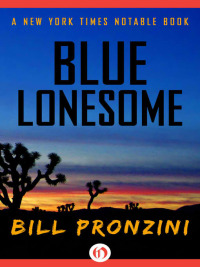The Hidden Girl by Louise Millar
 Wednesday, August 27, 2014 at 8:41AM
Wednesday, August 27, 2014 at 8:41AM 
Published by Atria on August 26, 2014
Will and Hannah leave their flat in London to move into a home in Suffolk. Buying the house was Hannah's idea, an attempt to impress the social worker who will decide whether they will be allowed to adopt. Will resents the daily two hour drive to work he will need to make but feels the need to placate his wife. Hannah is obsessed with fixing up the ancient house so that the social worker will deem it a perfect environment for raising a child. Will would like to have another beer or three. Each finds the other supremely irritating. Each wonders when the other became so needy. Unfortunately, they each need different things.
Hannah is eager to finish painting and decorating within two weeks, before the social worker arrives. After a long weekend, Will returns to his London job, leaving Hannah to carry on without him until evening. Things begin to happen that you might expect in an atmospheric novel about a creepy old house. A blizzard strands Will in London, leaving Hannah feeling isolated. Cell phone service disappears. The boiler goes out. Hannah sees an odd shape in the window. Footprints appear next to hers in the snow. Doors to certain rooms are locked and she has no keys. Gruff neighbors are less than welcoming. Things go bump in the night. Objects disappear and reappear. The refrigerator door keeps falling open. And so on. One early twist in The Hidden Girl is the mysterious donkey that shows up during a snowy night. I give Louise Millar props for the donkey; it's a nice touch.
As the plot develops, the reader wonders which of the eccentric neighbors will eventually threaten Hannah, or whether she is being haunted by a ghost. A young woman in the neighborhood, apparently mentally disabled, is a key character, although her importance does not become clear until the novel's second half. When Hannah witnesses troubling events and discusses them with certain neighbors, the inbred villagers turn against her, spreading lies that make Hannah seem even more demented than she manages to be on her own. Whether they will destroy everything Hannah is trying to achieve -- and more importantly, why the might be motivated to do so -- are the mysteries that build the novel's suspense.
Hannah is the central character, but her pettiness and unchecked anxiety often make her an unpleasant literary companion. She's unreasonably fickle, hating Will's sister for most of the novel until deciding they will be lifelong friends. It is easy to empathize with poor Will while wondering why he puts up with Hannah. Still, Hannah is a realistic character, just not a particularly likable one, although by the end Millar made me work up some sympathy for her. Hannah also demonstrates an understanding of her own obsessions and has the opportunity to improve before the novel ends. Will is less the novel's focus but he is also an easy character to believe.
As much as I disliked Hannah, I liked the story, primarily because I didn't know where it was going. Millar does a masterful job of creating a sense of foreboding without letting the reader know exactly what there is to fear. Millar manages a reasonably good balance between family drama and external threats to the family.While the novel has a "Can this marriage be saved?" theme, it is secondary to the suspenseful plot. The resolution is farfetched but plausible and, more importantly, creative.
RECOMMENDED



